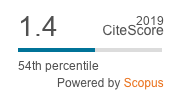Using the IGCRA (individual, group, classroom reflective action) technique to enhance teaching and learning in large accountancy classes
Abstract
First year accounting has generally been perceived as one of the more challenging first year business courses for university students. Various Classroom Assessment Techniques (CATs) have been proposed to attempt to enrich and enhance student learning, with these studies generally positioning students as learners alone. This paper uses an educational case study approach and examines the implementation of the IGCRA (individual, group, classroom reflective action) technique, a Classroom Assessment Technique, on first year accounting students’ learning performance. Building on theoretical frameworks in the areas of cognitive learning, social development, and dialogical learning, the technique uses reports to promote reflection on both learning and teaching. IGCRA was found to promote feedback on the effectiveness of student, as well as teacher satisfaction. Moreover, the results indicated formative feedback can assist to improve the learning and learning environment for a large group of first year accounting students. Clear guidelines for its implementation are provided in the paper.
Keywords
Classroom Assessment Techniques (CATs), reflective learning, reflective teaching
Full Text:
PDFDOI: https://doi.org/10.3926/jotse.11
This work is licensed under a Creative Commons Attribution 4.0 International License
Journal of Technology and Science Education, 2011-2024
Online ISSN: 2013-6374; Print ISSN: 2014-5349; DL: B-2000-2012
Publisher: OmniaScience







